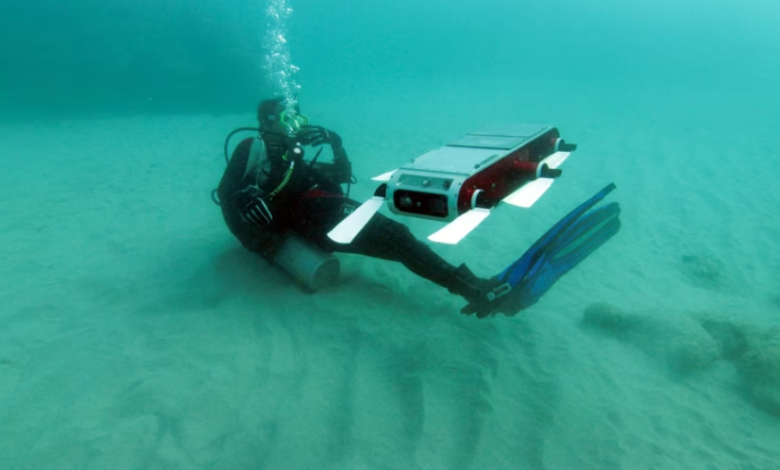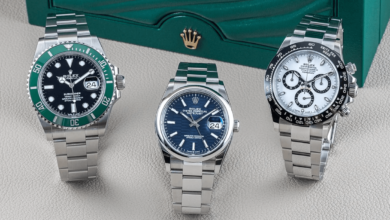Exploring the Science Behind Marine Castings

The maritime industry has long been at the forefront of innovation, utilising the latest technologies to ensure efficient, safe, and sustainable operations across the world’s oceans. Central to the development of maritime technology is the process of marine castings – a complex and fascinating science that underpins the integrity of vessels and equipment subjected to the daunting forces of the sea. In this article, we will delve into the science behind marine castings, examining how cutting-edge methods are paving the way for superior maritime components.
The Process of Marine Castings
At its core, marine casting is the method of shaping molten metal into specific geometries by pouring it into a mould and allowing it to solidify. This is an essential procedure in the manufacturing of various marine components, from propellers to anchor chains. The casting process begins with the design and creation of a mould, which must be meticulously crafted to ensure the final component’s precision and strength.
Materials Used in Marine Castings
The selection of materials for marine castings is a critical decision, influenced by factors such as corrosion resistance, strength-to-weight ratio, and ability to withstand extreme temperatures and pressures. Common materials include bronze, stainless steel, and specialised alloys which are designed to endure the harsh marine environment.
See also: Life Impocoolmom: Life Tips From Impocoolmom: Advice for a Balanced Lifestyle
Technical Considerations in Marine Castings
Marine castings must account for various technical considerations, most notably, the casting method chosen for production. Methods such as sand casting, investment casting, and die casting each have their own set of advantages and constraints. Engineers must select the most appropriate method based on the intended use of the component, the material selected, and the desired level of detail and precision.
Quality Assurance in Marine Casting
Quality assurance is paramount in the realm of marine castings. Rigorous testing and inspection protocols are in place to verify that each casting meets strict industry standards. Non-destructive testing techniques such as ultrasound, x-ray, and magnetic particle inspection are utilised to detect any internal or surface-level defects that could compromise the component’s performance.
Advancements in Marine Casting Technology
Technological advancements have spurred remarkable improvements in marine casting techniques. Sophisticated computer-aided drafting (CAD) and computer-aided manufacturing (CAM) systems now allow for precise modelling and machining, resulting in components with unrivalled accuracy and integrity.
Environmental Impacts of Marine Castings
The environmental impact of marine casting processes is an aspect that receives increasing attention. Sustainable practices are being integrated into production, including the recycling of excess materials and the reduction of energy consumption throughout the casting process.
The Role of Expertise in Marine Castings
Expertise in marine castings ensures the production of high-quality, reliable components. Companies that specialise in this field have a deep understanding of the complexities involved in producing marine parts. Renowned for their commitment to excellence, FC Casting Solutions casting services exemplifies the calibre of expertise required to deliver dependable marine casting services. Their advanced techniques and meticulous attention to detail ensure that each component produced adheres to the marine industry’s stringent standards.
Challenges in Marine Casting Processes
The marine casting industry faces numerous challenges, including balancing cost-effectiveness with the high standards required for marine-grade components. Additional challenges include evolving environmental regulations, which demand sustainable manufacturing practices, and the continuous need for innovation to maintain a competitive edge.
The Importance of Customised Marine Castings
Customised marine castings play a vital role for specific maritime applications. The ability to tailor components to the exact needs of a ship or equipment ensures optimal performance and longevity. The customisation aspect requires close collaboration between engineers and clients, with every casting reflecting a unique set of requirements and specifications.
Future Trends in Marine Castings
The future of marine castings is geared towards increased automation, reduced lead times, and the adoption of 3D printing for certain applications. Innovations in metalworking and the development of new alloys promise to further enhance the properties of marine castings, ensuring they remain a cornerstone of maritime engineering.
Conclusion
The science behind marine castings is a remarkable fusion of engineering, material science, and precision manufacturing, which collectively contribute to the safety and functionality of sea-faring vessels. From the selection of robust materials to the application of advanced production technologies, every aspect of the marine casting process is grounded in a commitment to quality and performance. The expertise of companies like FC Casting Solutions underpins the maritime industry’s ongoing progress, fostering the production of robust, reliable components that can brave the challenging marine environment.
Embracing the Future of Marine Castings
As the maritime industry continues to evolve, the science of marine castings becomes ever more sophisticated, responding to the needs for strength, resilience, and environmental responsibility. With expert providers at the helm, the future of marine castings is set to embrace exciting innovations, delivering solutions that propel the industry forward in sustainable, efficient ways.
In conclusion, understanding the science behind marine castings not only provides insight into the complexity and precision of maritime engineering but also highlights the importance of expertise and innovation in ensuring the industry’s success. It is through mastery of this science that the maritime industry can continue to conquer new frontiers, powered by the excellence of marine castings.




